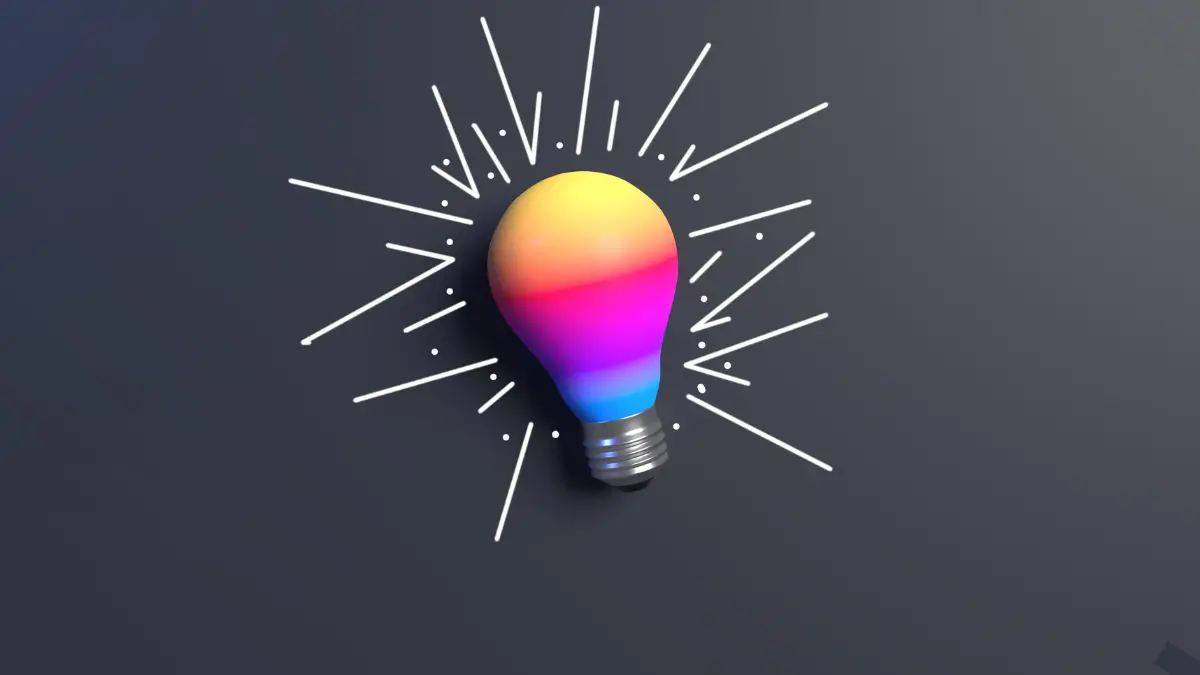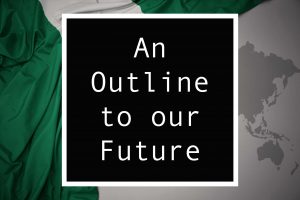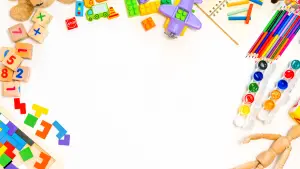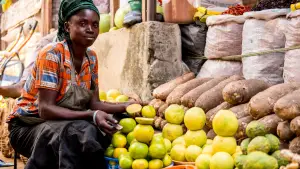Animation represents a creative field that combines artistry, technology, and storytelling to produce captivating visual content. While Nigeria is best known for its vibrant film industry, Nollywood, animation has become as an increasingly important and innovative sector within the country’s creative landscape.
Animation in Nigeria encompasses a wide range of styles, techniques, and genres, reflecting the country’s diverse cultural heritage and artistic influences. From traditional hand-drawn animation to cutting-edge computer-generated imagery (CGI), Nigerian animators explore a variety of mediums to bring their stories and characters to life.
Nigerian animation draws inspiration from a rich tapestry of cultural traditions, folklore, and everyday life experiences. Animators often incorporate elements of Nigerian mythology, history, and contemporary social issues into their work, creating content that is both culturally resonant and globally relevant.
In recent years, the Nigerian animation industry has experienced significant growth and recognition, fueled by advances in technology. As well as increased access to training and resources, and a growing demand for animated content both domestically and internationally. Nigerian animators and studios have garnered a claim for their creativity, talent, and ability to produce high-quality content that captivates audiences of all ages.
As the animation industry in Nigeria continues to evolve and expand, it offers exciting opportunities for collaboration, innovation, and storytelling. With a rich pool of artistic talent, a vibrant cultural landscape, and a growing appetite for animated content, Nigeria is poised to make its mark as a leading hub of animation excellence on the global stage.
This essay will explore the evolution, current landscape, and future prospects of animation within the context of Nigeria’s creative scene.
Overview of the Nigeria’s Creative Industry
Nigeria’s creative industry encompasses a diverse array of sectors, including film, music, fashion, and visual arts, reflecting the country’s rich cultural heritage and artistic talent.
In recent years, the industry has experienced significant growth, fueled by increasing domestic demand and international recognition.
For example, Nigeria’s film industry, commonly referred to as Nollywood, has emerged as the second-largest film industry in the world by volume. Producing thousands of films annually and generating billions of dollars in revenue. The music industry has also seen remarkable growth, with Nigerian artists achieving international acclaim and dominating charts across Africa and beyond.
Nigerian creatives have garnered a claim for their ability to blend traditional influences with contemporary sensibilities, captivating audiences around the world.
Evolution of Animation in Nigeria
The history of animation in Nigeria traces back to the early efforts of pioneering animators such as Kunle Afolayan and Tunde Kelani, who laid the groundwork for the development of the industry.
Over the years, advancements in technology and a growing pool of talent have propelled Nigeria’s animation sector forward. Leading to the emergence of studios such as Anthill Studios and Spoof Animation.
These studios have produced a range of animated content, from short films to television series, showcasing Nigeria’s creative prowess on the global stage.

Current Landscape of Animation in Nigeria
Today, Nigeria boasts a vibrant animation scene, with a growing number of studios, educational programs, and industry events contributing to its development. Studios like Komotion Studios and Magic Carpet Studios are creating innovative animated content that resonates with both local and international audiences.
Despite challenges such as funding constraints and infrastructure limitations, animators in Nigeria are forging ahead. Driven by a passion for storytelling and a commitment to pushing the boundaries of creativity.
For example, Disney+’s Iwájú animation series has played a significant role in Nigeria’s development of animation by showcasing the country’s talent and storytelling on a global platform. And fostering collaboration between Nigerian creatives and an industry giant like Disney.
Iwájú is a groundbreaking animated series developed by Disney+ in collaboration with Nigerian-American entertainment company Kugali Media. Set in Lagos, Nigeria, the series combines science fiction elements with Nigerian mythology and culture to create a unique and captivating story. Here’s an analysis of Iwájú:
Iwájú is notable for its authentic portrayal of Nigerian culture, folklore, and mythology. The series draws inspiration from various aspects of Nigerian life, including traditional beliefs, customs, and urban environments. By incorporating Nigerian culture into its storytelling, Iwájú celebrates its rich heritage and showcases its diversity to a global audience.
The visual aesthetics of Iwájú are striking and visually stunning. The series features vibrant colors, intricate character designs, and detailed backgrounds that bring its fictional world to life. The animation style blends traditional hand-drawn animation with modern digital techniques. Resulting in a visually dynamic and immersive viewing experience.
“Iwájú” boasts a compelling and multi-layered narrative that explores themes such as identity, power, and the clash between tradition and modernity. The story follows a group of young heroes who must navigate a futuristic Lagos while confronting supernatural forces and grappling with their struggles. Through its complex characters and thought-provoking plotlines, “Iwájú” offers viewers a rich and engaging story that resonates on multiple levels.
Despite its Nigerian setting and cultural influences, Iwájú has broad appeal beyond the borders of Nigeria. The series’ universal themes, relatable characters, and high-quality animation have garnered attention and praise from audiences worldwide. By blending elements of Nigerian culture with universal storytelling tropes, “Iwájú” has successfully bridged cultural divides and attracted a diverse audience of fans.
Iwájú represents a significant milestone in the development of Nigeria’s animation industry. By partnering with Disney, Kugali Media has elevated the profile of Nigerian animation on the global stage and provided a platform for local talent to showcase their skills and creativity. The success of “Iwájú” has paved the way for future collaborations and investment in Nigeria’s animation sector, driving growth and innovation within the industry.
Opportunities and Challenges
The Nigerian animation industry presents significant opportunities for growth and expansion, with the potential to attract investment, create employment opportunities, and promote cultural exchange.
The prospects of animation in Nigeria are bright and promising, with significant opportunities for growth and development across various dimensions.
Here are some specific factors contributing to the positive outlook for animation in Nigeria:
1. Rising Demand: There is a growing demand for animated content in Nigeria, fueled by the increasing popularity of digital media platforms. And the rising consumption of entertainment content by a young and tech-savvy population. This demand presents opportunities for animators and studios to create diverse and engaging content that resonates with Nigerian audiences.
2. Cultural Relevance: Animation has the potential to serve as a powerful tool for preserving and promoting Nigerian culture, folklore, and traditions. By incorporating elements of Nigerian mythology, history, and everyday life into their work, animators can create content that celebrates the country’s rich cultural heritage and resonates with local audiences.
3. Global Recognition: Nigerian animators and studios have gained recognition and a claim on the international stage, thanks to collaborations with global partners such as Disney and Netflix. As well as the success of independent projects like “Bino and Fino” and “Malika: Warrior Queen.” This global recognition opens up opportunities for Nigerian animators to reach new audiences and markets beyond the borders of Nigeria.
4. Talent Pool: Nigeria boasts a pool of talented animators, artists, writers, and storytellers who are passionate about their craft and eager to make their mark in the animation industry. With the availability of animation training programs, workshops, and resources, aspiring animators have access to the skills and knowledge needed to succeed in the field.
5. Technological Advancements: Advances in technology have democratized the production of animation, making it more accessible and affordable for aspiring animators and small studios. Software tools, digital platforms, and online resources allow animators to create high-quality content with minimal resources, opening up new avenues for creativity and innovation.
6. Government Support: The Nigerian government has recognized the potential of the creative industry, including animation, as a driver of economic growth and development. Initiatives such as grants, tax incentives, and funding programs have been introduced to support the growth of the animation sector and encourage investment in local talent and content.
7. Educational Institutions: Educational institutions in Nigeria are increasingly offering programs and courses in animation and related fields, providing aspiring animators with formal training and qualifications. These institutions play a crucial role in nurturing talent, fostering creativity, and building a skilled workforce for the animation industry.
However, challenges such as limited access to funding and outdated infrastructure pose obstacles to the industry’s full potential. Addressing these challenges will require concerted efforts from the government, private sector stakeholders, and the creative community to create a supportive ecosystem for animators and creative professionals.
Impact and Influence of Nigerian Animation
Nigerian animation has made a profound impact on both domestic and global audiences, showcasing the country’s diverse culture and vibrant storytelling tradition. Animated films such as “Bino and Fino” and “Malika: Warrior Queen” have received critical acclaim and garnered awards at international film festivals, shining a spotlight on Nigerian talent and creativity.
Moreover, animation has the power to inspire social change and promote positive representation, empowering marginalized communities and amplifying their voices on the world stage.
Some specific impacts of Nigerian Animation include the following:
1. Economic Growth: Nigerian animation contributes to the country’s economy through revenue generated from the production, distribution, and licensing of animated content. This revenue includes income from ticket sales, merchandise sales, advertising, and licensing deals with international partners.
2. Job Creation: The animation industry in Nigeria creates employment opportunities for animators, artists, writers, voice actors, technicians, and other professionals involved in the production process. Additionally, ancillary industries such as marketing, distribution, and merchandising support further job creation.
3. Export Revenue: Successful Nigerian animated content has the potential to generate export revenue through international distribution deals, licensing agreements, and sales of merchandise and ancillary products. This revenue contributes to the country’s foreign exchange reserves and promotes Nigeria’s cultural exports on the global stage.
4. Infrastructure Development: The growth of the animation industry in Nigeria stimulates investment in infrastructure such as animation studios, production facilities, post-production services, and digital technology. This infrastructure development supports the growth and competitiveness of the animation sector and related industries.
5. Skills Development: The animation industry in Nigeria fosters skill development and capacity building among animators and creative professionals through training programs, workshops, and educational initiatives. These skills contribute to the professionalization of the industry and enhance the quality of animated content produced in Nigeria.
6. Cultural Promotion: Nigerian animation promotes the country’s cultural heritage, values, and storytelling traditions to both domestic and international audiences. By showcasing Nigerian stories, folklore, and characters, animation contributes to cultural preservation, identity formation, and national pride.
7. Social Impact: Animated content produced in Nigeria has the potential to educate, entertain, and inspire audiences, addressing social issues, promoting positive values, and fostering inclusivity and diversity. This social impact contributes to community development, empowerment, and social cohesion.
Conclusion
In conclusion, animation holds immense promise as a driving force within the Nigerian creative industry, offering opportunities for innovation, cultural exchange, and economic growth.
By harnessing the talents and resources available, Nigeria can position itself as a global hub for animation, contributing to the advancement of the creative sector and the nation as a whole.
As the industry continues to evolve, the future looks bright for Nigerian animation, with endless possibilities waiting to be explored and realized.





